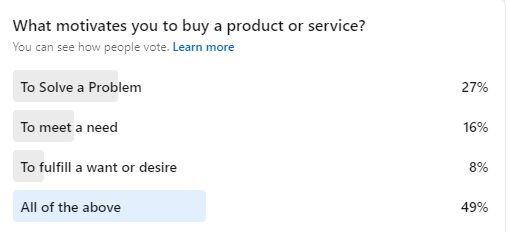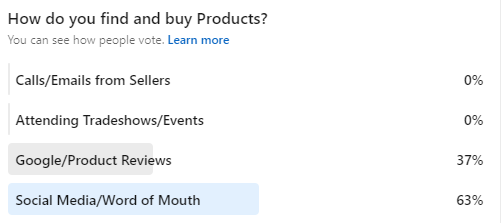What makes Product Marketing Difficult? What Product Marketers do
What is the hardest part of Product Marketing?
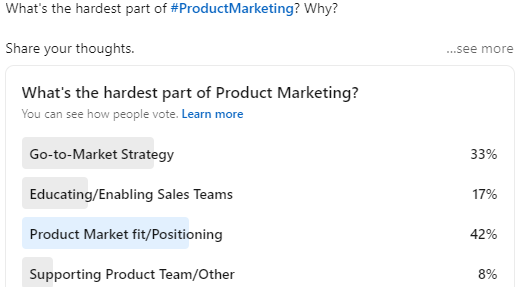
LinkedIn poll of my audience
Marketers need to develop and deploy a buyer-centric go-to-market strategy. It is time for marketers to ask better questions about buyers.
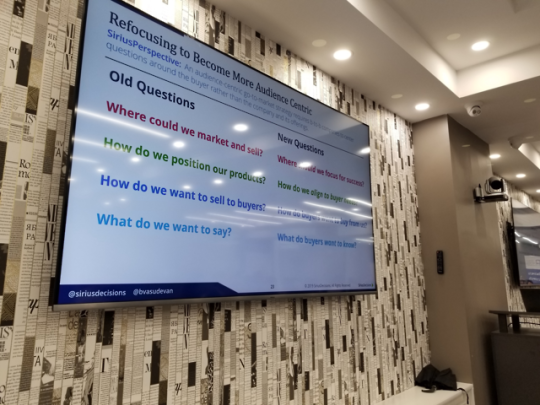
What is the role of a Product Marketer?
I covered the Product Marketing Community workshop to find out.
Workshop Topics included how to:
- Build and execute go-to-market plans
- Develop actionable buyer insights
- Create effective Messaging and Content for buyers
- Enable Sales and Product Teams
Businesses should identify their ideal customer.

Only certain target customers will buy due to internal and external factors.


To grow revenue, businesses need to develop and use better competitive insights. Developing these insights entails examining everything about the competition to identify: strengths, weaknesses, competitor priorities, growing, and under-served markets.

Product Marketing involves more than Marketing and Product Team support. Product Marketers serve Marketing, Sales, and Product teams. Each team has different needs and responsibilities. However, they all grow the business and serve customers.
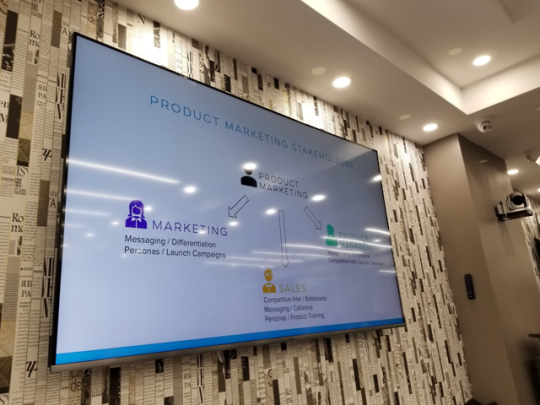
Product Marketers serve as market experts and translators for teams from across the organization.
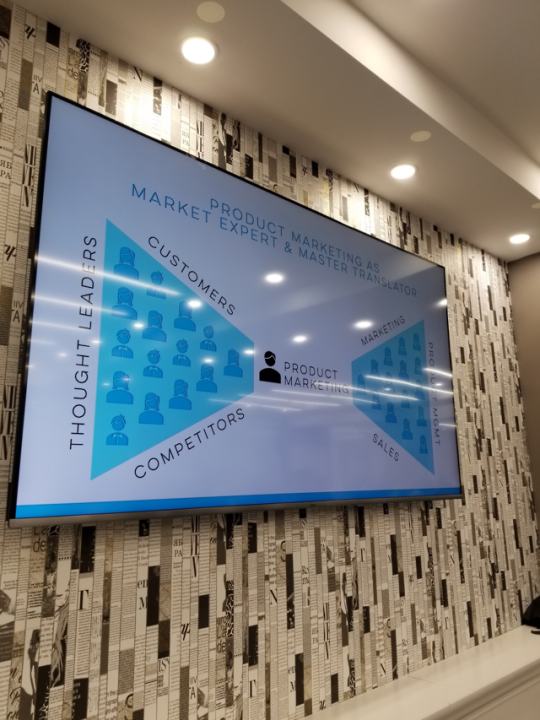


What is Product Marketing?

Product Marketing is the discipline of bringing a product to market and nurturing its success. Businesses need to create and market products people want to buy. To do that, they need to use the Pragmatic Framework.

Product Marketers are taking on some Product Manager responsibilities
Product Marketing needs a separate brief.
Just as Marketing has a plan or brief, Product Marketing does.
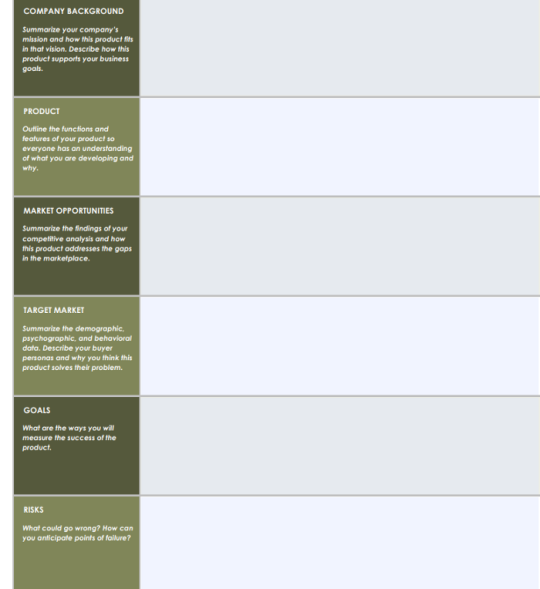
SmartSheet.com Product Marketing Template
Here are nine things to address in a Product Marketing Brief.
- What does your company do? Does your product offering align with your business goals?
- What are the features of your product? Do others understand what you are building and why?
- Does this Product address gaps in the Market? Include an overview of a Competitive, win-loss and, SWOT analysis.
- Who is your ideal customer or target market? Include an overview of findings of demographic, psychographic, and buyer persona research. Does your product solve customer pain points?
- How will you measure product success?
- What are can go wrong? Can failure be anticipated and corrected?
- What is the roadmap and schedule of the product? Who’s responsible and in charge?
- Who needs to be included in the project and who needs to approve deliverables?
- How will goals be tracked? How often will they be monitored? What insights are you trying to glean from the data?

Johnathan Hinz of Seismeic shares his insights on sales enablement and its role in marketing.

The lack of Sales and Marketing alignment is due in part to the inadequate amount of customer value mapping relating to the number of buyer types.


Product Marketers, what’s the hardest part of your job?
How do you know if you are successful?
Share your thoughts.

